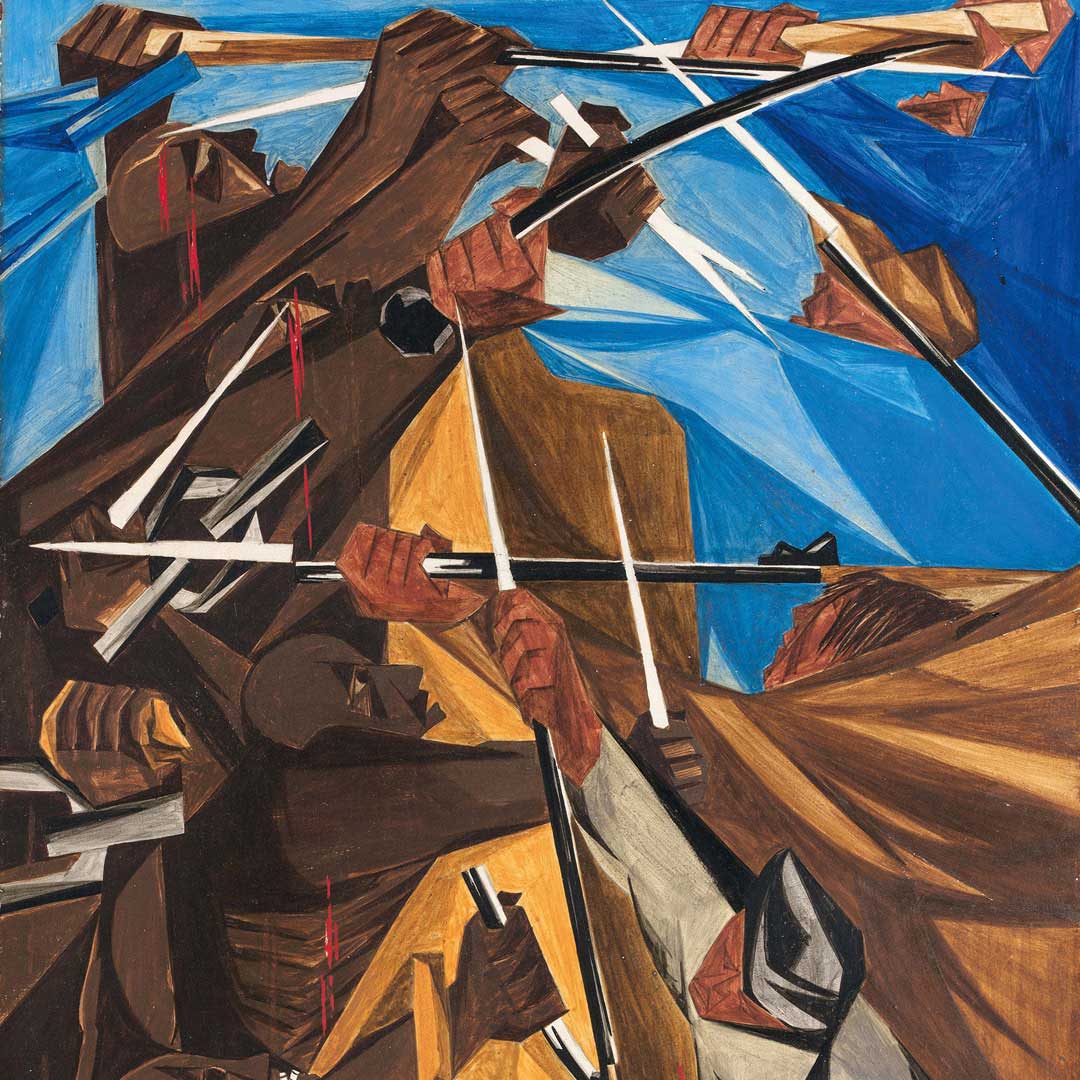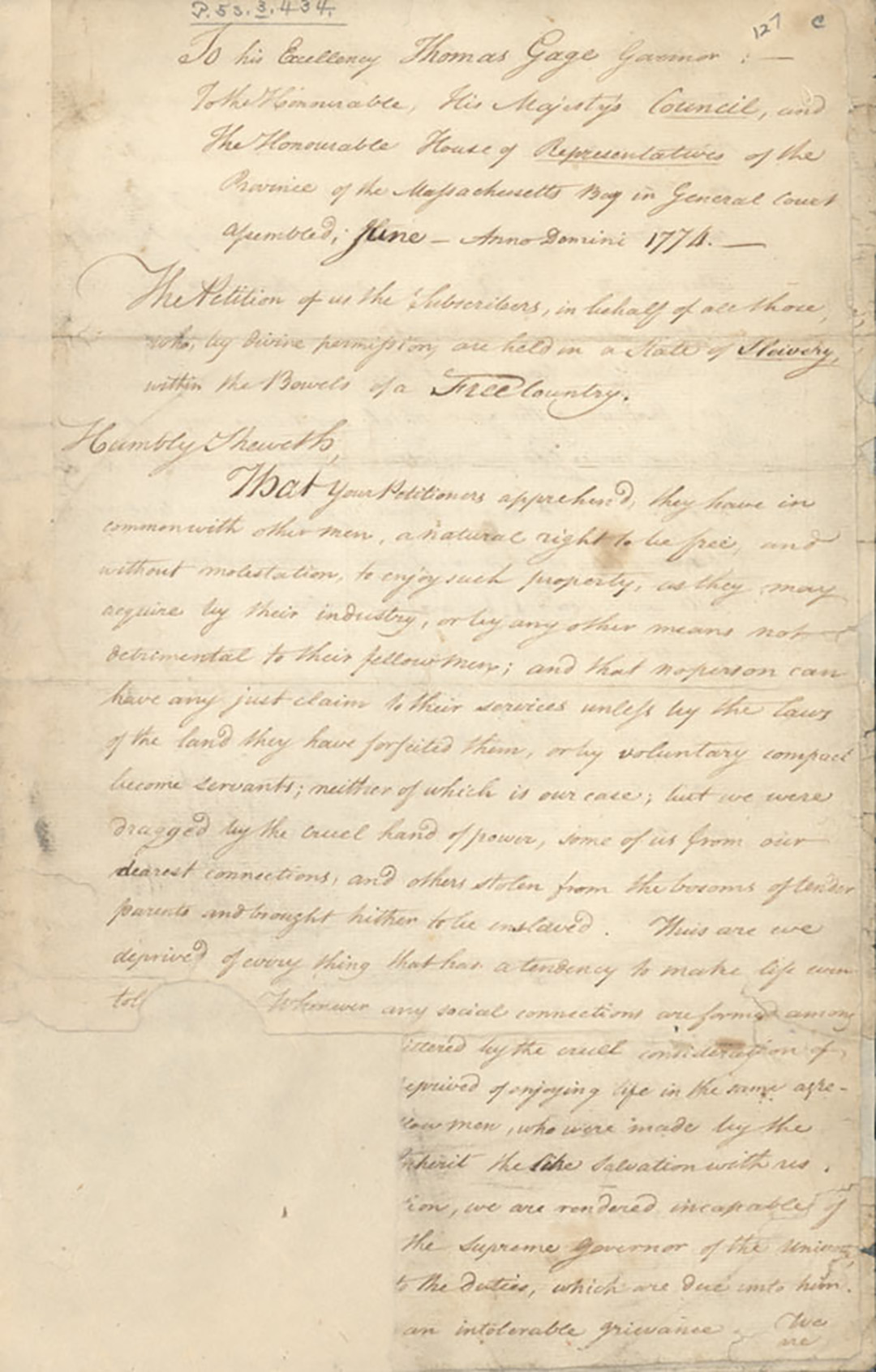Read Closer
An enslaved man who identified himself only as “FELIX” offered this petition for freedom to the governor of the Province of Massachusetts Bay and its House of Representatives on January 6, 1773. Felix declares that enslaved people have "in common with other men, a natural right to be free!" and Lawrence paired the text with an image of a violent uprising.
Excerpt from “Felix’s Petition,” excerpted in Herbert Aptheker, A Documentary History of the Negro People in the United States, Volume 1 (New York: Columbia University Press, 1943)
How many of that Number have there been, and now are in this Province, who have had every Day of their Lives imbittered with this most intollerable Reflection, That, let their Behaviour be what it will, neither they, nor their Children to all Generations, shall ever be able to do, or to possess and enjoy any Thing, no, not even Life itself, but in a Manner as the Beasts that perish.
We have no Property! We have no Wives! No Children! We have no City! No Country! But we have a Father in Heaven, and we are determined, as far as his Grace shall enable us, and as far as our degraded contemptuous Life will admit, to keep all his Commandments
Petition for freedom to Massachusetts Governor Thomas Gage, His Majesty's Council, and the House of Representatives, June 1774. Jeremy Belknap papers, Massachusetts Historical Society

